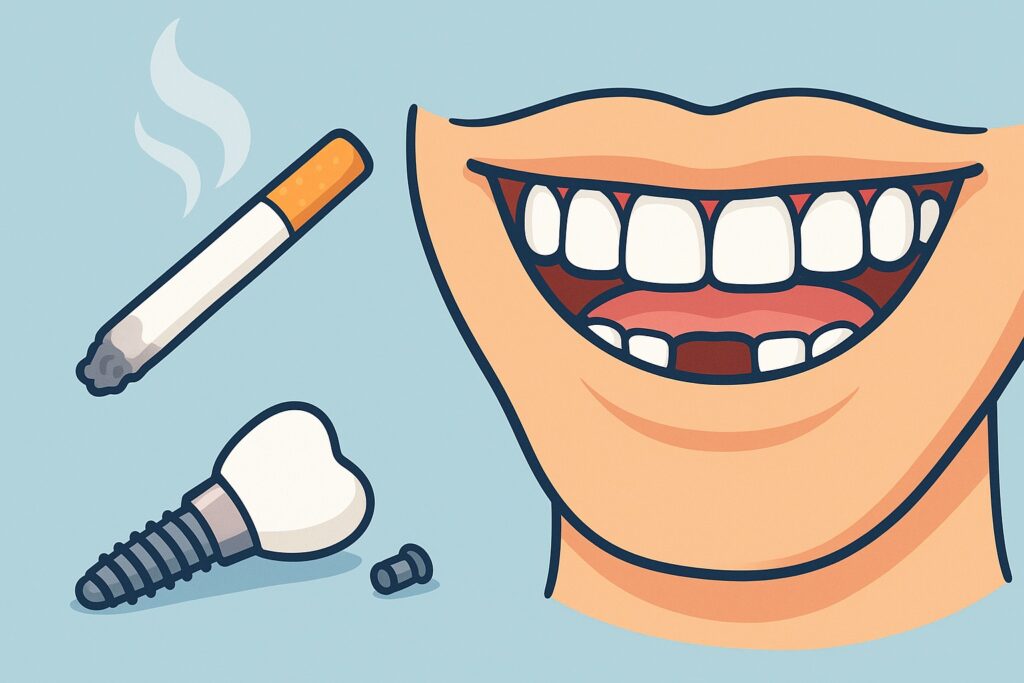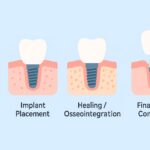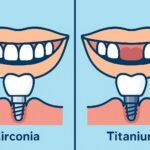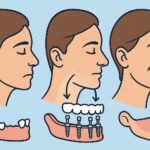Dental implants rely on a healthy healing process to fuse securely with the jawbone. Any disruption during recovery can reduce the chances of success. Smoking is one of the most common risk factors for implant failure, yet many patients wonder if “just a few cigarettes” will make a difference. Light smoking may seem less harmful, but even minimal nicotine and smoke exposure can interfere with blood flow, bone integration, and gum tissue recovery after surgery. Understanding the risks, critical healing stages, and long-term effects is essential before deciding whether smoking is worth the risk.
Why Smoking Impacts Dental Implants
For a dental implant to succeed, the surrounding bone must grow tightly around the implant in a process called osseointegration. This requires a strong blood supply and healthy gum tissue. Smoking interferes with both.
Nicotine constricts blood vessels, reducing oxygen and nutrient delivery to the surgical site. Without enough circulation, bone and gum tissue heal more slowly, leaving the implant vulnerable. Smoke and toxins also irritate the gums, weakening the body’s ability to fight infection. Together, these effects increase the chance of poor healing, infection, and eventual implant failure.
Even light smoking produces these harmful effects, meaning there is no truly “safe” amount during the healing period.
Risks of Light Smoking After Dental Implant Surgery
Many patients assume that smoking only a few cigarettes per day is less harmful than heavy smoking. While lighter use may reduce overall exposure, the body still experiences the same negative effects—slowed healing, increased infection risk, and reduced implant stability.
Common complications linked to light smoking after implant surgery include:
- Delayed healing: Reduced blood flow slows down recovery of gum tissue and bone.
- Peri-implantitis: A condition similar to gum disease, where the tissue around the implant becomes inflamed and infected.
- Implant failure: Smokers—light or heavy—have significantly higher rates of implant loss compared to non-smokers.
Even one cigarette during the first few days can disturb clot formation and increase the likelihood of complications. The risks remain throughout the healing process, making abstaining completely the safest approach.
Healing Timeline and When Smoking Is Most Dangerous
The recovery period after dental implant surgery goes through several stages, and smoking is particularly harmful during each one:
- First 72 hours: This is the most critical phase. A blood clot forms to protect the surgical site. Smoking can dislodge the clot, delay gum closure, and introduce harmful bacteria.
- First month: Soft tissue healing continues, and early bone integration begins. Nicotine limits circulation, slowing these processes and making infection more likely.
- Osseointegration period (3–6 months): The implant gradually fuses with the jawbone. Even light smoking reduces oxygen delivery, increasing the risk that the implant will not fully bond.
Because each stage is vital to long-term success, dental professionals strongly advise avoiding smoking entirely until healing is complete. For many patients, that means staying smoke-free for at least 3–6 months.
Long-Term Effects of Continuing to Smoke After Implants
Even if the implant survives the initial healing phase, ongoing smoking creates long-term risks. Nicotine and toxins continue to irritate gum tissue, weaken the immune response, and reduce bone density around the implant. Over time, this can lead to:
- Higher rates of peri-implantitis: Chronic inflammation and infection around the implant.
- Bone loss: Reduced bone support compromises the stability of the implant.
- Greater chance of implant loss: Studies show implant success rates are significantly lower in smokers compared to non-smokers.
While quitting smoking entirely gives the best chance of long-term implant success, even cutting down does not remove the risks. The more consistently a patient avoids smoking, the longer their implant is likely to last.
Conclusion
Dental implants depend on proper healing and stable bone integration, and smoking—whether heavy or light—directly interferes with both. Even minimal smoking reduces blood flow, slows recovery, and increases the chance of infection and implant failure. The first few days and months after surgery are especially critical, but long-term smoking also raises the risk of implant loss.
For the highest success rate, patients are advised to avoid smoking completely throughout the healing period and beyond. For those who struggle to quit, seeking support from a dentist or healthcare provider can make a significant difference in protecting both oral health and overall well-being.






